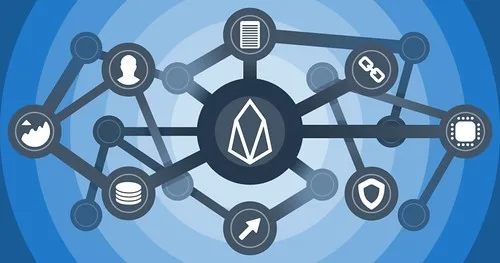
Blockchain technology, originally designed to support cryptocurrencies like Bitcoin, has transcended its initial purpose and is now disrupting various industries beyond fintech. While blockchain’s most famous use case remains in the world of digital currencies and financial services, its decentralized and immutable nature has opened doors to countless innovative applications across sectors such as supply chain management, healthcare, voting systems, and more. In this article, we will explore some of the most promising applications of blockchain technology beyond fintech, highlighting how it is reshaping industries and providing solutions to complex challenges.
Before we delve into these exciting applications, it’s worth noting that staying informed about the latest developments in the blockchain and crypto industry is crucial for understanding these innovations and their potential impact. You can follow credible crypto and blockchain news websites like Miami Crypto to stay updated and educated on the rapidly evolving landscape.
Blockchain’s Evolution Beyond Fintech
Blockchain technology, at its core, is a decentralized and immutable ledger that records transactions and data across a network of computers. This fundamental concept of secure and transparent record-keeping has found utility in numerous sectors:
1. Supply Chain Management
Blockchain is revolutionizing supply chain management by enhancing transparency, traceability, and efficiency. Companies can track the movement of goods and verify their authenticity at each stage of the supply chain. This technology helps reduce fraud, ensure product quality, and improve logistics. For instance, IBM’s Food Trust platform uses blockchain to trace the origin of food products, promoting food safety.
2. Healthcare
Blockchain’s potential in healthcare lies in secure and interoperable data management. Patient records, drug information, and research data can be stored on a blockchain, ensuring data accuracy, privacy, and accessibility. This can streamline medical research, facilitate telemedicine, and improve patient care.
3. Voting Systems
Blockchain-based voting systems promise enhanced security, transparency, and accessibility in elections. Votes can be securely recorded and verified, reducing the risk of fraud or manipulation. Countries like Estonia have already adopted blockchain for online voting.
4. Intellectual Property and Copyright Protection
Blockchain technology can protect intellectual property rights by timestamping creations on a tamper-proof ledger. Artists, writers, and creators can prove ownership and control over their work, reducing piracy and ensuring fair compensation.
5. Real Estate
Property transactions involve complex processes and paperwork. Blockchain simplifies these procedures by providing a secure and transparent ledger for property records, reducing fraud and accelerating the buying and selling of real estate.
6. Energy Management
Blockchain enables peer-to-peer energy trading, allowing consumers with solar panels or other renewable energy sources to sell excess energy directly to neighbors. This decentralized approach reduces energy costs, promotes sustainability, and minimizes grid congestion.
7. Gaming and Digital Collectibles
Blockchain technology has disrupted the gaming industry by offering transparent ownership and trading of in-game assets and digital collectibles. NFTs (Non-Fungible Tokens) represent unique digital items, such as artwork, virtual real estate, or in-game items, and are bought and sold on blockchain platforms.
8. Identity Verification
Blockchain-based digital identities offer individuals greater control over their personal data. Users can share specific information securely, streamlining identity verification processes for various purposes, from opening bank accounts to accessing online services.
9. Charity and Aid Distribution
Blockchain improves transparency and accountability in charitable organizations and aid distribution. Donors can track their contributions, ensuring they reach the intended recipients without intermediaries taking a significant cut.
10. Government Services
Governments are exploring blockchain for various services, including land registry, taxation, and social welfare distribution. Blockchain can reduce corruption, enhance transparency, and streamline bureaucratic processes.
How to Stay Informed About Blockchain Developments
Blockchain technology continues to evolve rapidly, regularly introducing new use cases and innovations. To stay informed about the latest developments in the blockchain industry and keep yourself educated by following credible blockchain news websites and influencers.
Conclusion
Blockchain technology has transcended its fintech origins to revolutionize industries beyond finance. Its decentralized, transparent, and secure ledger system has applications in supply chain management, healthcare, voting systems, intellectual property protection, real estate, energy management, gaming, identity verification, charity, government services, and more. Following credible crypto and blockchain news websites is essential to stay informed and educated about the ever-evolving blockchain industry. By doing so, you can keep up with the latest developments and explore the limitless potential of blockchain technology in reshaping our world.

